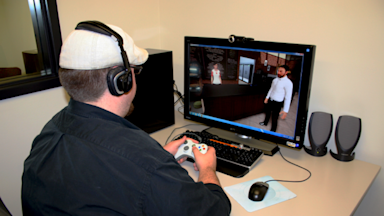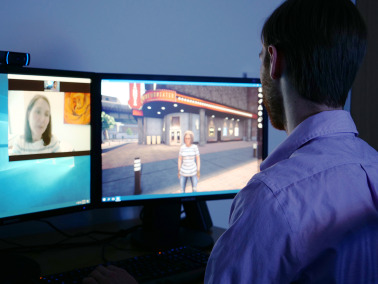- Theory of mind, or the ability to realize the intention of others, is often lacking in individuals with autism. After the intervention, the part of the brain associated with socio-cognitive processing showed an increased activation of social stimuli compared to non-social stimuli.
- The brain area responsible for socio-emotional processing showed individual gains in emotion recognition with decreased activation to social versus non-social stimuli. Thus, those that showed increased recognition of emotions paid more attention to social stimuli than non-social stimuli.
- The part of the brain for visual attention showed significantly decreased activation to non-social versus social stimuli across all participants.

Autism Intervention Study Shows Brain and Social Change
Center for BrainHealth
Share this article

Sandra Bond Chapman, PhD
Chief Director Dee Wyly Distinguished Professor, School of Behavioral and Brain Sciences Co-Leader, The BrainHealth Project

Tandra Allen, MS, CCC-SLP
Assistant Director of Research
Related Information
